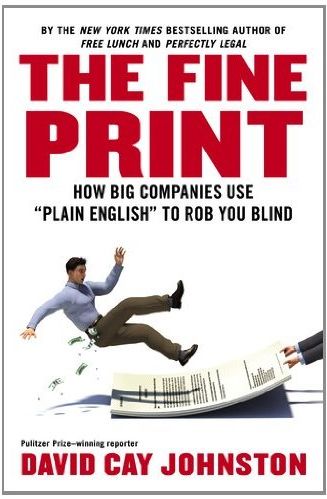American ISPs Collude to Keep Broadband Speeds Low and Prices High
American consumers seem to be paying more than ever for their internet access, while getting less than ever for their money. It turns out that this isn’t an illusion, if a new book by Pulitzer Prize-winning reporter David Cay Johnston is to be believed.
In his new book, The Fine Print: How Big Companies Use “Plain English” to Rob You Blind, Johnston explains how the big ISPs such as Verizon, Comcast and others collude to create cartels which allow them to remove any real market choice for consumers, thereby creating an effective monopoly across all the ISPs. Thus, these companies end up making ever more profit by not investing in new, faster, better infrastructure, while jacking up prices in the process.

Other things it allows them to do is to impose ever unpopular, significant restrictions such as data caps and traffic shaping, where the download speed is significantly reduced at certain times of day and/or certain services are used such as the Bittorrent download protocol. “The companies essentially have a business model that is antithetical to economic growth. Profits go up if they can provide slow Internet at super high prices.”
An example of this is an agreement between Verizon and Comcast, which allows them to resell internet services using each other’s infrastructure in areas where they don’t compete. This encourages the minimum investment in the networks, which heavily discourages the building of their own networks with the best performance and features for their customers. Instead they’re just sitting on cash cows which the hapless consumer can do nothing about.
So, how did this situation happen? “The telecos got the rules changed while we weren’t watching,” says Johnston in the accompanying interview. Basically, the phone and cable companies lobbied Washington to change laws and regulations to favor their business over their customers.”
Unfortunately, the bad news is that there doesn’t seem to be much being done about this at a government regulatory level, so American consumers are stuck with this situation for the foreseeable future.
In his book, he tells of a woman who in 1984 paid $9.51 for her local phone service. He writes:
“By 2003 her bill had swollen fourfold to $38.90. In the two decades since the breakup of the AT&T monopoly, even after adjusting for inflation, [her] telephone cost $2.30 for each dollar paid in 1984. And that was without any charges for long-distance calls.”

Comments are closed.